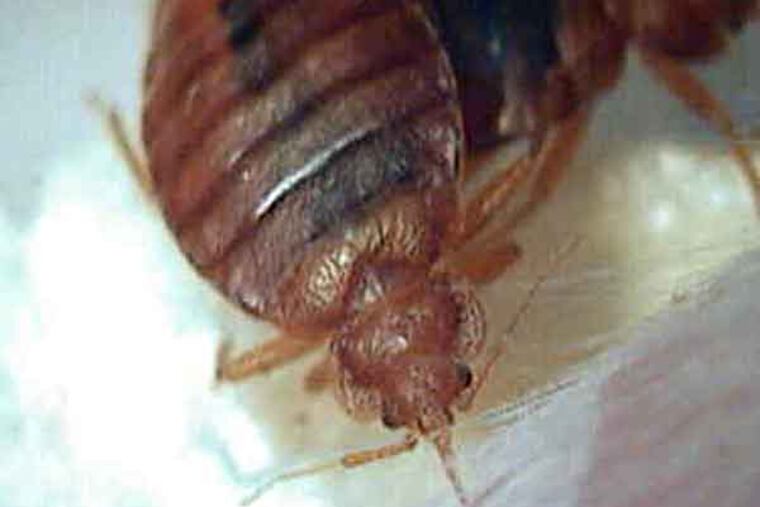Bugging out about city council’s bed bug bill
Like other big cities, Philadelphia has a big problem with bed bugs. But unlike other big cities, Philly lacks an official policy to help eradicate the icky little bloodsuckers. But is a recently amended policy proposed by 1st District Councilman Mark Squilla the best approach?

Hiding under mattresses and sneaking out under cover of darkness to feed on the blood of sleeping people, bed bugs (rhymes with ughs) have been around since dinosaurs roamed the earth. In other words, they’re survivors; they persist. And getting rid of these ingenious but totally revolting creatures requires persistence, too.
That’s why First District City Councilman Mark Squilla deserves credit for taking on a problem that has earned Philadelphia the unappetizing title of America’s most bed bug-infested city. Might this be due to the fact that unlike other big towns, Philly has no clear or specific bed bug control strategies or policies? That’s worth considering.
But whatever the case, Squilla, who set up a task force of experts to make recommendations, also should be applauded for acknowledging that his own South Philadelphia household had been among the many affected citywide. Bed bugs don’t discriminate or cause disease but they can carry a stigma, despite the fact that hotels worldwide and even the Manhattan headquarters of the New York Times have experienced an infestation. Good housekeeping is surely a good idea, but it offers no guarantee against bed bugs.
» READ MORE: Bedbug infestation closes Southwest Philadelphia charter school
Last week, Squilla was assailed for amending his anti-bed bug bill to split certain extermination costs between tenants and landlords. The pests can readily spread from apartment to apartment and rowhouse to rowhouse, and they often hitch a ride on clothing or luggage. So it’s difficult to assign blame, much less create the equivalent of a chain of custody, for these icky little critters, who — to further complicate matters — can hole up under rugs, in baseboards, and even inside electrical sockets for months before emerging to search for their next blood meal.
Squilla’s measure is still under review, but as amended it would make renters and landlords jointly responsible for the extermination costs of infestations discovered after an apartment or home has been occupied by the tenants for 90 days. If a tenant moves in and detects bugs before 90 days, the landlord is liable for the full cost, which can range from hundreds to well over a thousand dollars.
Critics cried foul: In an Inquirer op-ed, Michael Z. Levy, an associate professor of epidemiology at the University of Pennsylvania who has long studied bed bugs. wrote that the cost-shifting amendment is contrary to the original intent of the bill and would set back rather than advance eradication efforts. Research suggests that making landlords responsible, period, is the best approach, he said.
But Squilla said the cost-sharing was recommended by the task force and is intended not as a favor to landlords but as an incentive to tenants to promptly report bed bugs. An infestation worsens as the insects rapidly reproduce, and the larger the population, the more time and money is needed to exterminate it. The fact is, with it being impossible to know the origins of any single infestation, it seems fair for all to share the burden of eradicating it.
Squilla’s newly amended proposal isn’t perfect. But he says he is willing to fine-tune it further. It deserves a shot.